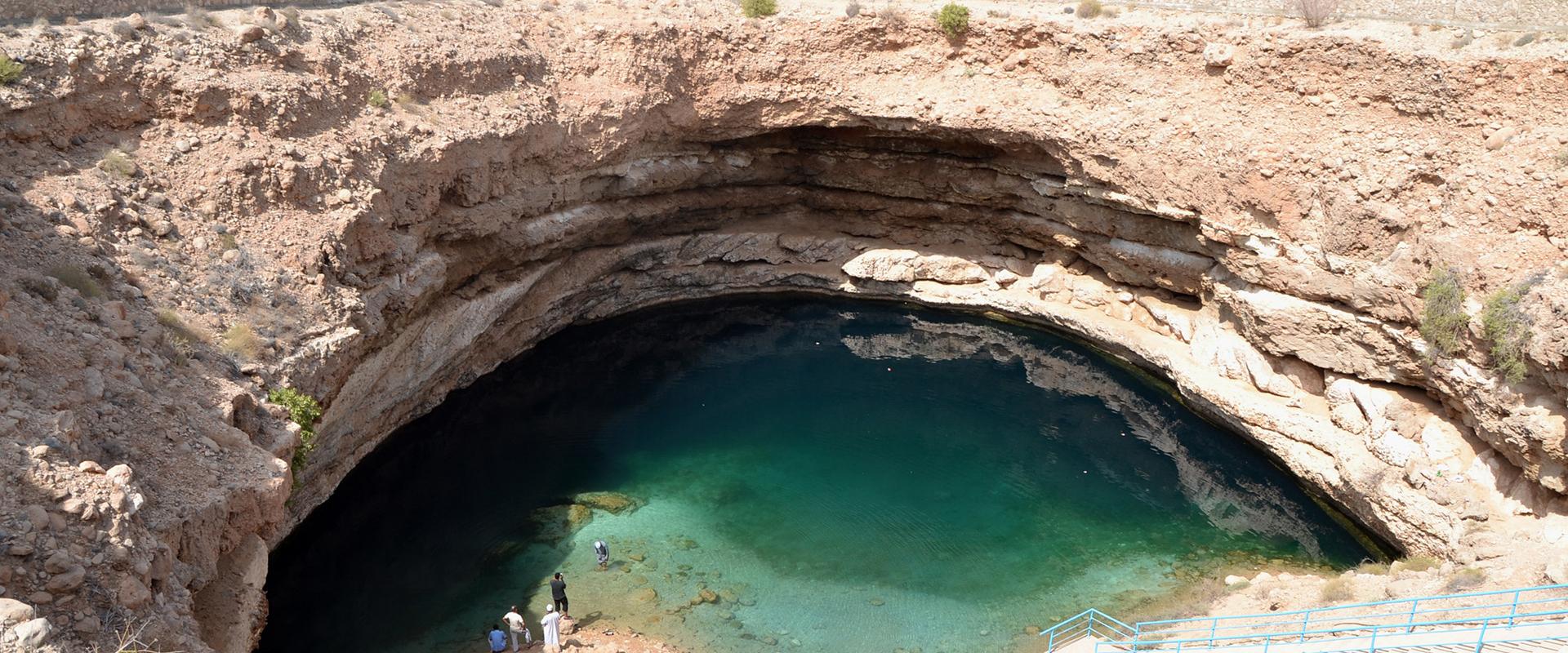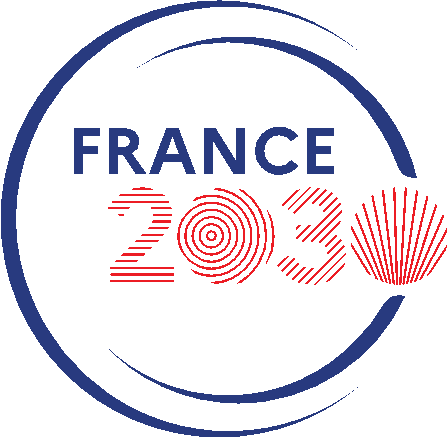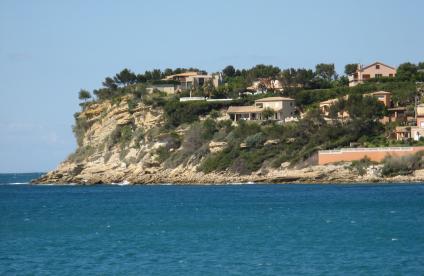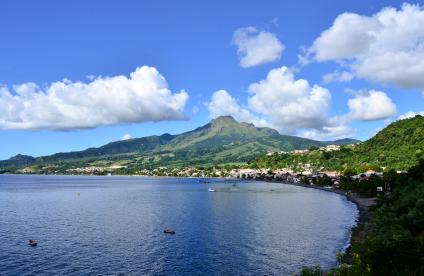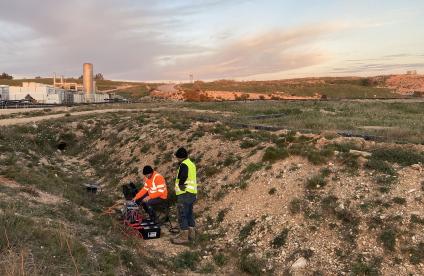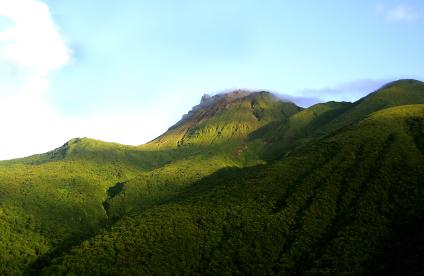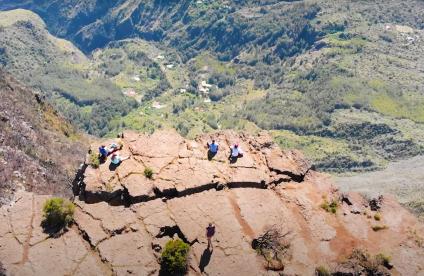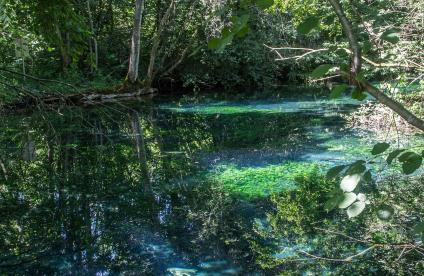
The OneWater programme logo.
© OneWater
The urgent environmental, social and political context in favour of OneWater
With global change, natural and anthropogenic pressures on water resources have been exacerbated and have become a major challenge for our societies in the 21st century: it is urgent to act now and at all levels.
Water is a common good, which is essential for life and socio-economic development. It is a resource, a living environment, a vital element for climate regulation, ecosystem functioning and human development.
France was one of the first countries in the world to set up water governance at the catchment basin level, but the assumption that everything could be resolved at the basin level is no longer considered to be true. Global phenomena are overtaking local conditions and new issues are emerging. These challenges need to be addressed through more integrated, systemic, multi-stakeholder approaches to co-construct solutions that are adapted to a range of different realities.
The OneWater Eau Bien Commun (water as a common good) programme, run jointly by BRGM with CNRS and INRAE, is one of the 4 exploratory PEPRs selected by the Government in the first round of the call for projects for "Priority Research Programmes and Equipment" (PEPR). Over a period of 10 years, this programme aims to change the paradigm by having water recognised as a common good, a central element of socio-ecosystems that are subject to climatic and anthropic forcing.
OneWater-Water as a Common Good, an exploratory PEPR of the "Investments for the future" plan (PIA4)
Priority research programmes and equipment (PEPRs) are financed by the fourth "Investments for the Future" programme (PIA4) and the France Relance (recovery) plan. They are intended to build or consolidate French leadership in scientific fields considered to be priorities at the national or European level and that are linked to a large-scale transformation. “Exploratory” PEPRs target emerging sectors with research whose areas of application may still be in the realm of working hypotheses. The aim is to explore scientific fields which hopefully will have multiple spin-offs.
Challenge 1 - Anticipate the evolution of water resources to allow regions to adapt to their specific conditions
- Improve knowledge of past and future variability of water resources based on hydroclimatic observations and modelling.
- Understand and model the way natural and anthropogenic feedback loops affect the water cycle.
- Review hydroclimatic trajectories since the 20th century, integrating uses and pressures.
- Develop seasonal to decadal forecasts.
- Assess adaptation scenarios based on solutions proposed in Challenge 4.
Challenge 2 - Develop a "water footprint" of environmental processes and human activities, considering not only water transfers but also its quality
- Apply the water footprint concept to biogeochemical elements across all domains, to differentiate between the combined effects of natural and anthropogenic processes related to water quality and quantity.
- Conceptualise the water footprint as a determining pressure on water quality and quantity.
- Quantify the evolution and transformation of this footprint.
- Suggest suitable and deployable measures.
- Analyse changes in the impact of responses on water quality and quantity.
Challenge 3 - Use water as a sentinel for the health of the environment and human societies along the land-sea continuum
- Encourage a transition from a repressive approach, linked to regulatory thresholds, to a co-construction of objectives based on trend analyses, to better understand the functioning and trajectories of socio-hydrosystems.
- Quantify the response times of hydrosystems to climatic and anthropogenic constraints.
- Determine and compare the spatio-temporal variability of responses at different scales.
- Distinguish between the cumulative effects of impacts on the ecological functioning and biodiversity of hydrosystems.
Challenge 4 - Propose solutions to promote the adaptability and resilience of socio-hydrosystems to deal with global change, and encourage more reasoned and integrated approaches and uses
- Promote trade-offs between human needs and resources, in quantity and quality, to ensure the adaptability and resilience of socio-hydrosystems.
- Identify the key conditions for adaptability and resilience.
- Characterise the barriers and levers to promote efficient and optimal use of the resource, including the circular economy.
- Identify viable, equitable and sustainable solutions.
Cross-cutting Challenge 5 - Support the socio-ecological transition to a new governance of resources, for a sustainable and resilient society
- Develop a renewed management of water resources and their uses by re-examining established models and systems with a view to improving them.
- Co-produce innovative governance models that consider water to be a common good.
- Develop original tools and approaches for a socio-ecological transition including the different uses of water resources and systems for protecting them.
- Build on sustainability science for a real paradigm shift.
Cross-cutting Challenge 6 - Share data on water for knowledge and action and make it accessible and understandable to all
- Support strategy and decision-making with knowledge by organising and sharing data from different sources.
- Build on what has been learnt, to re-examine it and to promote the acquisition of new knowledge where necessary.
- Support the adoption of data and services by the various stakeholders (from scientists to managers, etc.).
- Make data easy to Find, Accessible, Interoperable and Reusable (FAIR).
- Offer a single platform dedicated to "water" data.
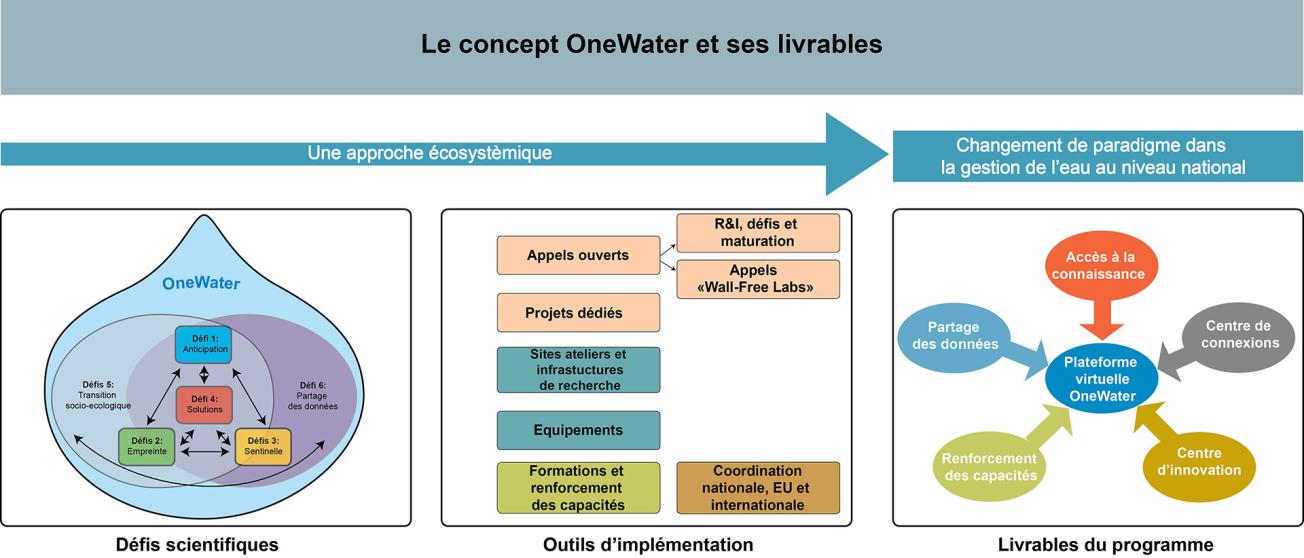
Diagram of the OneWater concept.
© OneWater
Impacts of OneWater
This transformational programme will have direct and significant impacts on the development of societies and regions:
- Socio-economic: supporting stakeholders in transforming their practices with innovative solutions, deployment of the circular economy.
- Environmental: adaptation solutions, preserving biodiversity and aquatic ecosystems, and advance warning of pollution and risks to resources.
- Health and social: improving the quality of life and health of populations, access to quality water and sanitation.
- Socio-cultural: changing practices through the integration of water values, development of integrated tools for data management and treatment for a holistic approach, priority of sectoral policies in the short, medium and long term.
- Scientific: international recognition, support for socio-economic sectors and European initiatives, emergence of a virtual water-platform.
Methods of implementation
OneWater proposes a national strategy (Mainland France, overseas territories) adapted to the needs of living organisms and water users, involving the water sector and regional stakeholders, in order to consolidate French world leadership in the field. It provides funding for innovative and strategically-oriented research to strengthen interdisciplinary and multi-stakeholderdialogue, by means of various instruments:
- Calls for projects open to the entire French scientific community, to stimulate new approaches and trans-disciplinary collaboration and to lift the barriers linked to the challenges and their interactions:
1. Calls for projects for each challenge and cross-cutting challenge.
2. Specific cross-cutting challenges to support transitions: “Wall-free Labs” which mobilise “clusters” of researchers, including doctoral and post-doctoral students, from complementary disciplines, to develop integrated and systemic approaches to a complex common issue. - Dedicated projects on subjects considered to be priorities, in order to structure common, practical tools and develop protocols that can be shared by the greatest number. Set up at the beginning of the programme, these projects rely on operational teams involved in the programme (e.g. demonstration projects, development of tools in the process of maturing, beginning of data structuring to create the OneWater virtual platform, etc.).
- Equipment to 1) complement existing equipment and meet the new challenges raised; 2) have sufficient storage capacity for the OneWater data platform while limiting its environmental footprint.
- Education through research actions to train and organise a generation of “OneWater” students with strong expertise in the discipline and with an interdisciplinary culture, accompanied by shared researcher-stakeholder schools, for integrated approaches with new tools.
- Actions at national, European and international levels in conjunction with existing initiatives to promote the programme's approach, leverage it and increase its visibility.
Governance
CNRS, BRGM and INRAE are running OneWater jointly and rely on partners with complementary and recognised skills. They will be represented in the institutional strategic committee, in conjunction with the three institutions running the programme. The team of three co-directors also relies on a programme committee organised around the challenges, an international scientific committee and a Think Tank made up of representatives of the stakeholders to respond to these major issues and to generalise the notion of water as a common good.
Partners
Project leaders
Other partners
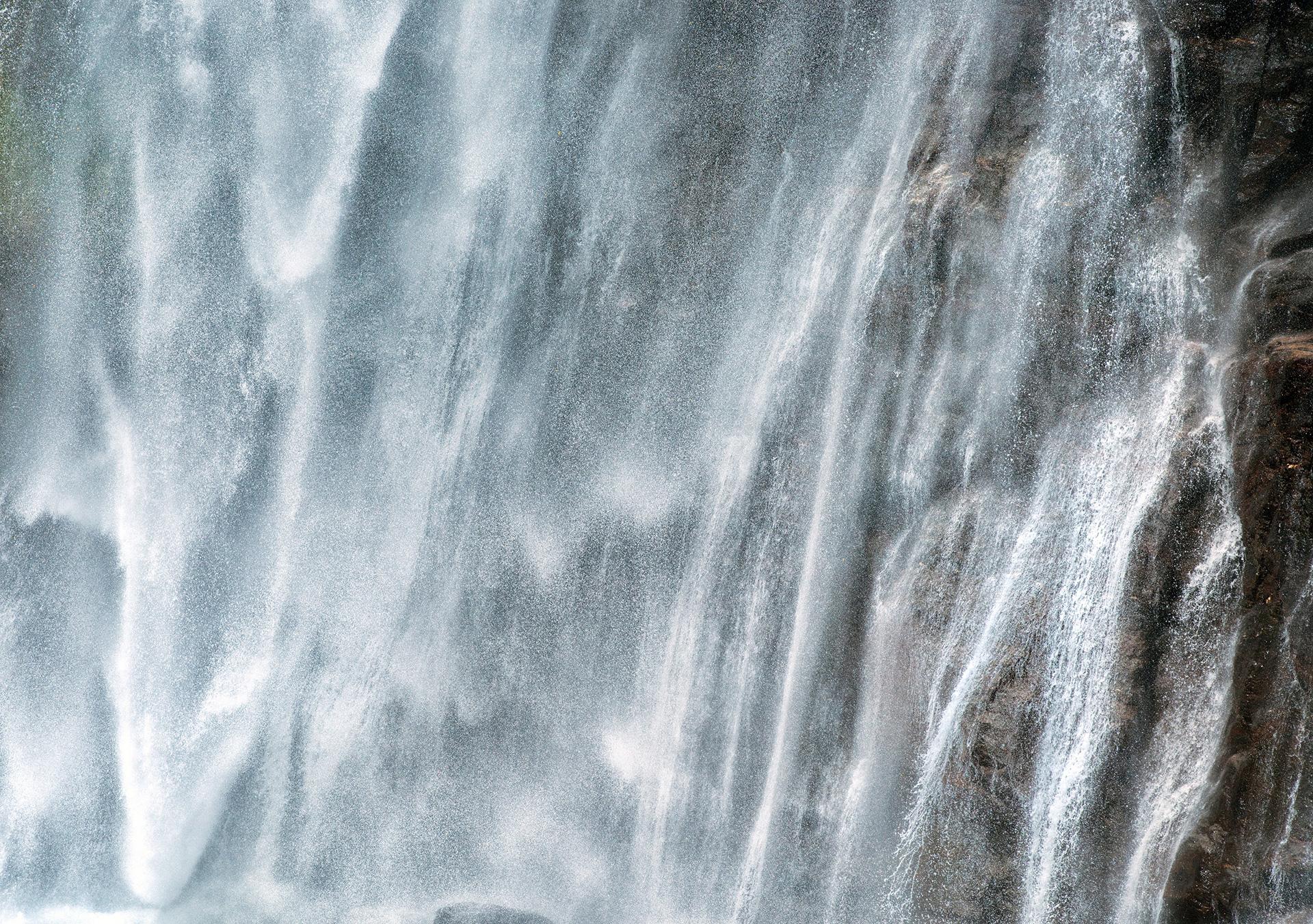
LinkedIn group to follow all the news about OneWater
To keep up to date with PEPR OneWater news, join us on the LinkedIn group OneWater - Water as a Common good!

